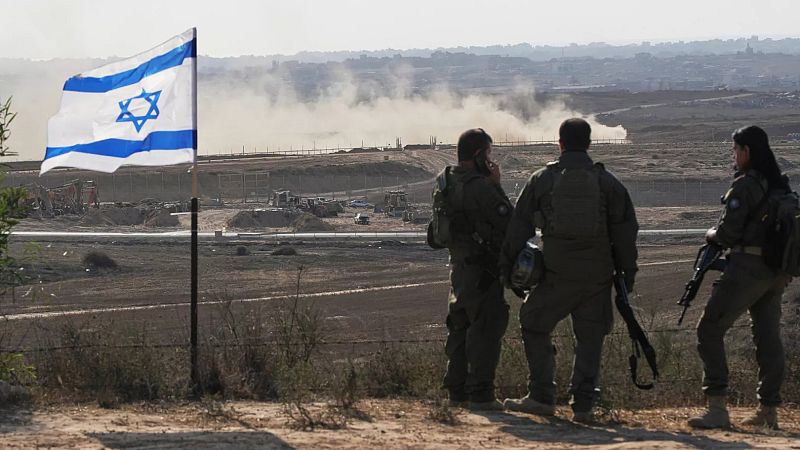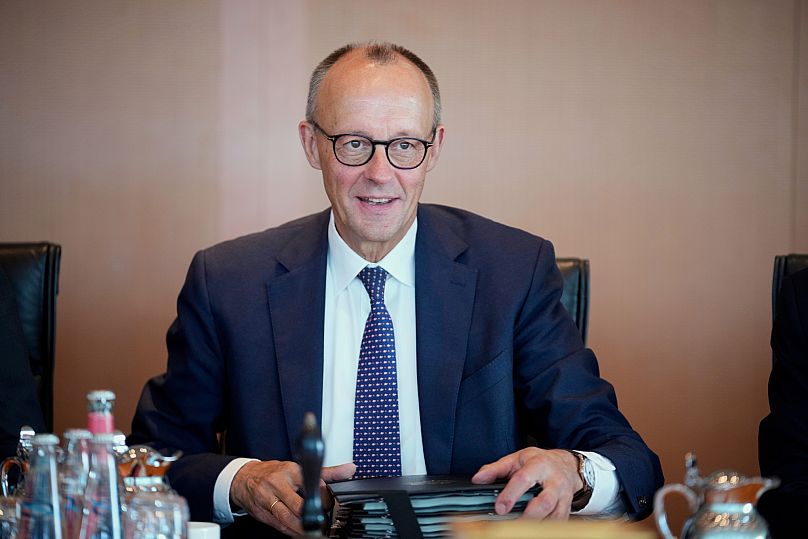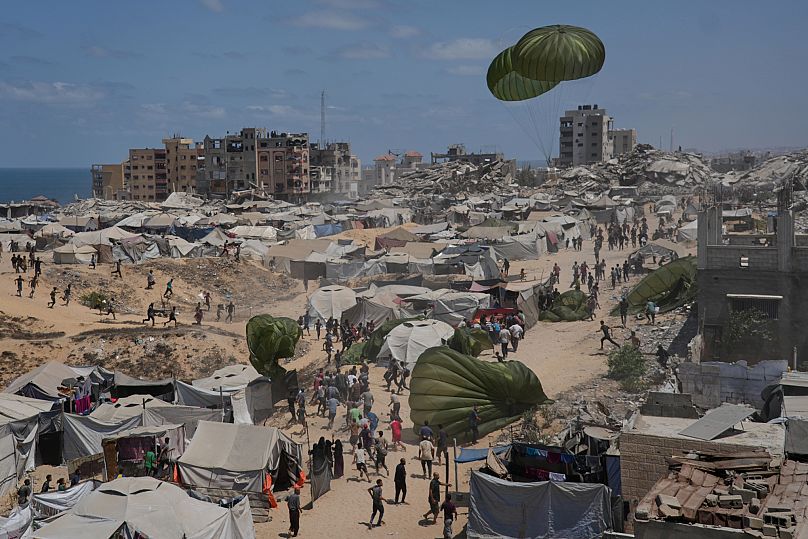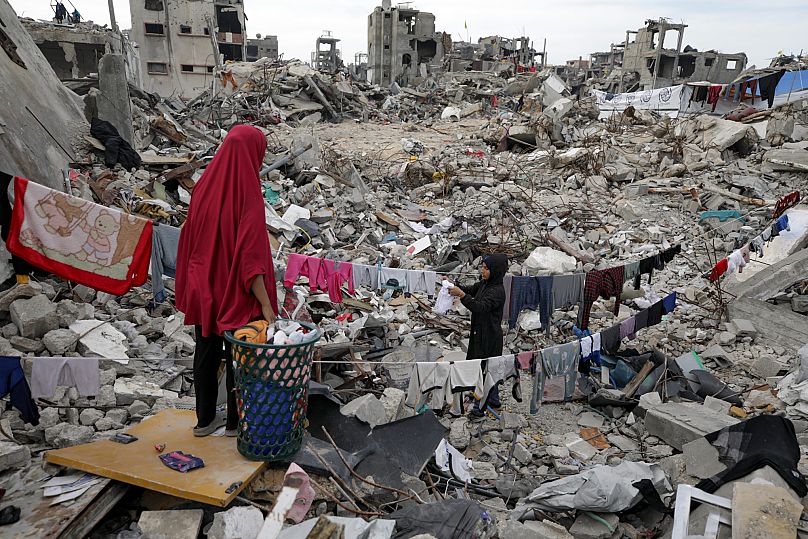Germany halts military exports that could be used in Gaza, Chancellor Merz says

Germany's Chancellor Friedrich Merz said on Friday that country will not authorise any exports of military equipment that could be used in Gaza "until further notice".
The move from Berlin, which has historically been a stalwart supporter of Israel, comes after the Israeli Cabinet announced plans to take over Gaza City.
In a statement, Merz emphasised that Israel "has the right to defend itself against Hamas' terror" and said that the release of Israeli hostages and "purposeful" negotiations toward a ceasefire in the 22-month war "are our top priority".
He also said Hamas must not have a role in the future governance of Gaza.
"The even harsher military action by the Israeli army in the Gaza Strip, approved by the Israeli (security) cabinet last night, makes it increasingly difficult for the German government to see how these goals will be achieved," he added.
"Under these circumstances, the German government will not authorise any exports of military equipment that could be used in the Gaza Strip until further notice."
The German government remains deeply concerned about the suffering of civilians in Gaza, he said. "With the planned offensive, the Israeli government bears even greater responsibility than before for providing for their needs," Merz explained.
He called on Israel to allow comprehensive access for aid deliveries, including for UN organisations and other NGOs, and said Israel "must continue to comprehensively and sustainably address the humanitarian situation in Gaza."
Germany also called on Israel’s government "not to take any further steps toward annexing the West Bank."
Israel imports almost 70% of its military arsenal from the US, the world’s largest arms exporter. Germany is Israel’s second biggest supplier and since the Israel-Hamas war in Gaza started in October 2023, Berlin has exported €485 million worth of weapons.
Italy ranks third, supplying less than 1% of Israel’s military kit.
Changing opinion
Merz's comments come amid a sea change of opinion among a number of Western countries about how the war on Hamas in Gaza is being fought and the resulting humanitarian crisis.
In July, the foreign ministers of 28 countries, including Belgium and the United Kingdom, issued a joint statement saying the war "must end now" and that Israel must comply with international law.
The foreign ministers said "the suffering of civilians in Gaza has reached new depths” and condemned “the drip feeding of aid and the inhumane killing of civilians, including children, seeking to meet their most basic needs of water and food."
In January, Israel banned the main UN organisation delivering aid to Palestinians in Gaza, UNRWA, from operating, claiming the agency turned a blind eye to Hamas members in its ranks.
Responsibility for aid distribution was handed over to the opaque US-backed Gaza Humanitarian Foundation (GHF), which had no previous experience of delivering aid to combat zones.
Its delivery method has been criticised by established aid groups and deliveries at its four distribution sites across Gaza have often seen people killed, either in crowd crushes or after Israeli forces or security contractors opened fire near aid-seekers.
Also last month, French President Emmanuel Macron said France would recognise Palestine as a state at the UN General Assembly in September, adding that he hoped the move would help bring peace to the region.
Shortly after that announcement, Portugal's government said it was consulting the country's main political parties about potential recognition of a Palestinian state.
Today




